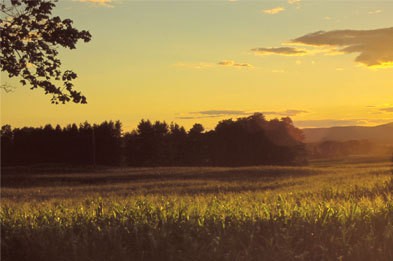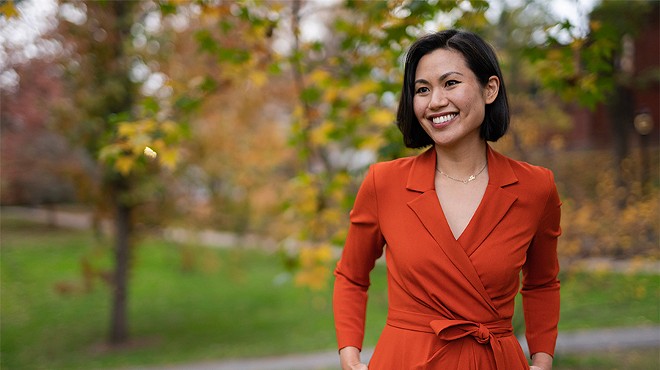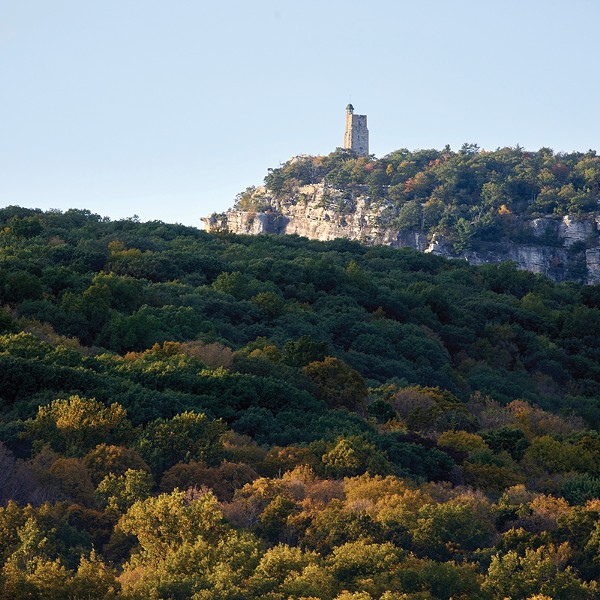The way of the integral being is to join with higher things.
By holding to that which is refined and subtle, she traverses refined and subtle realms.
If she enters the world, she does so lightly, without attachment.
In this way she can go anywhere without ever leaving the center of the universe.
—Hua Hu Ching
Life is so simple. All you have to do is breath.
—Don Diego de Ucayali
Esteemed Reader: April 2011
[]
Esteemed Reader of Our Magazine:
There is a Tibetan teaching that suggests three grades of food on the spectrum of nutrition—solid and liquid stuff that goes into the mouth; air breathed into the lungs; and the impressions of light, sound, taste, smell, and touch that enter the senses. The teaching says that the physical and psychic health of a person depends on the quality of all three forms of nutrition.
We all know it is important to eat a balanced diet of wholesome foods that are minimally processed. And we know it is vital to deeply breathe clean, fresh air. But how often do we consider the quality of the impressions we imbibe through our senses?
There’s a strong suggestion in my children’s Waldorf kindergarten to keep electronic media out of the home. Being that our family is steeped in, and even sustained by, media, this has been a challenge, and we (the parents) have occassionally given in to demands for canned entertainment.
Recently we put our feet down and cut out all media. We also elicited promises from the grandparents not to turn on the television. To our delighted surprise the transition has been easy. Imaginative play has taken the place of dead-time in front of a screen.
The children make up elaborate dramas with the variety of Scheherazade’s thousand and one stories. Any object can be a prop in the impromptu theater, or most often the object is invisible, but clearly identifiable in context. We have learned that our children’s tender and ripening imaginations are a vast and creative place.
Nutritionally, the processed media we consume is akin to freeze dried astronaut ice cream in its vitality and nutrient value. It is denuded of the life force inherent in the living, nature-born impressions from real life that nourish the mind. Even the highest quality canned media is toxic and constipating.
Within our science-flattened, marketing-poisoned mindset we have little patience for the notion of levels of things. Assessing the array of screenshots, media products, and processed impressions we pour into our senses, it is clear that we have come to lack innate discernment of coarse and fine, meaningful and meaningless, nourishing and poisonous. But there is truth in the ancient model of a ladder that stretches from the infernal to the heavenly.
Everything that exists has a rung on the ladder of reality, and the measure of each thing is in our own being, for within us every level is represented. Protagoras famously said, “Man is the measure of all things: of things which are, that they are, and of things which are not, that they are not.” The first genuine impression we can have is of ourselves, and by awakening that measure in ourselves, we can measure the world.
Sometimes the truth of levels of impressions stands out in relief. For this I love the environs of my hometown, New Paltz. In the evening the sun sets over the Shawangunk Ridge, spilling into the Wallkill River Valley, accentuating the vastness of the sky. The scene is beatific. But standing on Main Street at this hour, one is confronted by a collision of worlds. There is the world that is near—the noise of cars and horns, conflicting music emanating from stores and bars, cacophonous architecture, random wires crisscrossing overhead, advertising and signage; and beyond the landscape of fields and woods, cliffs, sky, and sun, silently emanating the lawful beauty of natural order, its balance and symmetry.
The insight is clear: If we possessed the perception to behold the higher beauty of nature, we would treasure and caretake the natural world. We would not build machines or environments that are destructive to great nature or human nature. Instead we would strive to emulate that natural beauty in our lives and manufactured surroundings. We would study it, and hold it as a paradigm for manifesting higher impressions in our collective and personal lives.


















